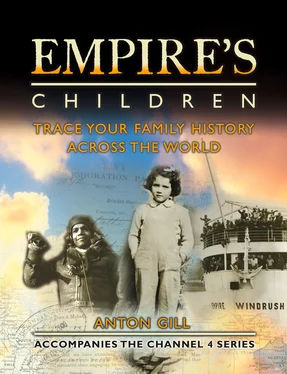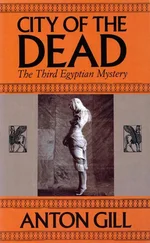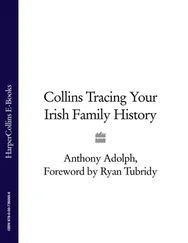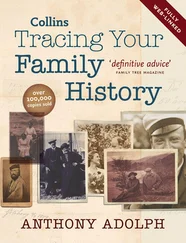The pressure came in the form of a Stamp Act, introduced in 1765, designed to impose a tax on all documents, including newspapers and even playing cards, throughout the Empire. The Congress convened in reaction to it placed an embargo on British goods. The demonstrations and riots which attended the introduction of the Act took London by surprise, but George III, together with his advisers, refused to bend with the wind, taking the view that the American colonies were junior members who had no right to question their authority.
Though there was plenty of support in Britain for the Americans’ point of view, the approaching rift was probably inevitable. The Americans, while still seeing themselves as British, were growing away from the mother country. There was no aristocracy in the colonies; men lived and worked together in a more egalitarian society, which was simpler and less sophisticated than that of England, certainly, but had its own integrity and pride, and its intellectuals were feeling their way towards a quasi-socialist modus vivendi. Chary of the French they may have been, but they were quite willing to absorb what such writers as Rousseau and Voltaire had to say. A sense of independence was in the air, for sure, and there was enough unity for the Americans successfully to apply pressure on Westminster to repeal the unpopular Act in the following year, 1766.
The repeal of the Act, however, did nothing to lessen tension, as the British promptly passed another law which emphasized London’s right to make unchallengeable legislation for Britain’s colonies. The Americans simply ignored it, and continued to refuse to pay taxes they deemed unfair. New taxes imposed on tea and imported finished goods were withdrawn after two years because no one paid them. Clearly military force could not be used – these were, after all, our own people – but something had to be done to break the deadlock. By 1770 there was still a stalemate. By ill-fortune, Britain had an increasingly intractable king and a series of vapid prime ministers at the time. In the American colonies, the British government’s executives found themselves powerless to enforce any of the measures demanded of them by London. The foolish decision was made to use limited but selective force after all. It was also decided to apply it in Boston, the largest and wealthiest city in the American colonies, and an intellectual hub. It was like lighting a match next to gunpowder.
The tipping point was passed in the wintry March of 1770, and it was triggered by what on the face of it was a petty incident. A young wigmaker’s apprentice, backed up by some cronies, brusquely told a British officer that he was late paying his barber’s bill. The officer had actually paid it earlier the same day, but ignored the boy, who became more vociferous. When he would not go away, a British sentry hit him over the head with his rifle butt. This quickly led to a confrontation between a couple of redcoats and a small group of Bostonians who by now had gathered and threw snowballs and street filth at the British. The soldiers panicked and called reinforcements, who duly arrived, but meanwhile the crowd had grown, its mood turned uglier, and the people started to throw sticks and stones and lumps of ice. Then one of the soldiers was struck to the ground by one of the missiles. His gun went off as he fell, and in the confusion his comrades opened fire at the mob. Five men were killed and six more injured.
The British were not the brutal thugs depicted in the sillier Hollywood retellings of the War of Independence – arrogant officers with Eton accents leading troglodytic foot soldiers with bad Cockney accents. There was far less distinction between Britons and Americans than there is now, and one of the redcoats involved in what became known as the Boston Massacre fired his gun into the air rather than at what he and many like him regarded as fellow citizens. But the damage was done, and what was quickly to become the independence movement had its first martyrs. The next three years saw the burning of a revenue cutter at Rhode Island and, in 1773, the Boston Tea Party, when a group of Americans disguised as Indians tipped the cargo of tea – worth £10,000 – from an East India Company ship into the harbour in protest at new levies designed to protect the Company’s monopoly.
However, the Stamp Act had not imposed huge duties, nor did the Tea Act, to which the Boston Tea Party had been a reaction. Tea, in fact, had become very cheap, and it has been suggested that the men who dumped it over the side of the East Indiaman were not aggrieved citizens but smugglers who objected to what amounted to a rebate on its cost, since the new tax imposed on the Americans was less than what the English paid.
These incidents were triggers, symptoms of a deeper unrest; and the Quebec Act, though it neutralized Canada, caused a furore in the American colonies. Recognition of Catholicism, associated as it was with the excesses of the Spanish colonizers to the south and the French alliances with native tribes whose cruelty in war bore no relation to European humanism (at least in theory), sparked panic, and there was outrage at the annexation of the lands south of the Great Lakes which, the Americans had assumed, would soon be theirs to settle. A new Congress was called, in Philadelphia, in September 1774 to decide on a course of action.
America was rich: Britain depended on it not only for luxuries like tobacco but also for timber for masts for the ships of the Royal Navy. Thus one logical line to take was to impose a trade boycott on Britain and its other colonies. Britain could not retaliate in the same way because although she exported a variety of finished goods to the Thirteen Colonies nothing she could offer was indispensable to them. But the cautious deliberations of Congress were quickly overtaken by men who wanted to take a much more radical course of action. British colonial governors were stranded, British executives were simply ignored and had not sufficient military backup to enforce their demands, and during 1775 actual power began to slip increasingly into the hands of what were alarmingly looking more and more like rebels. On neither side was there unity. Many Americans wished to remain within the British Empire, and many Britons supported independence. Either way, whether or not anticipated with dismay by many on both sides of the Atlantic, war seemed, and indeed was, inevitable.
Britain was still recovering financially from the Seven Years’ War and did not relish the cost of sending a large army so far overseas and then supplying it. The Americans in general were more bullish, but the rebels faced at worst an experienced and well-honed military and naval power with more than the potential to crush them and make sure they never rose again. The Americans only had groups of militias to oppose them, though Congress moved in the summer of 1775 to establish a standing army, and engaged George Washington, forty-three years old and a veteran of battles with the French during the Seven Years’ War, to organize and lead it. Black Americans fought on both sides. Those who managed to escape slavery and sided with the British were promised their freedom in return; a promise which in the event the British were unable to fulfil.
Skirmishes and pitched battles took place during 1775, especially around Boston, and late in the year the Americans tried unsuccessfully to invade Canada. They remained confident in their cause, however, and as early as 1776 made their Declaration of Independence at Philadelphia.
The war continued unresolved until 1778, when the French, who were still smarting from the loss of Canada, signed a treaty with the colonial forces, by now fielding near-professional armies under Washington, and also adept at guerrilla techniques unfamiliar to their British counterparts. Spain joined the revolutionary alliance a year later, but held back from open support of American independence, having its own South American colonies to consider. The Dutch also joined in 1780, sharing with Spain and France a desire to see Britain curbed as a world power. The cooperation of these countries weakened Britain’s dominance at sea, and with many at home opposed to this wasteful and expensive conflict with a people who were perceived as countrymen fighting in a just cause, who should be allies and trading partners, not enemies, British resolve faltered.
Читать дальше












